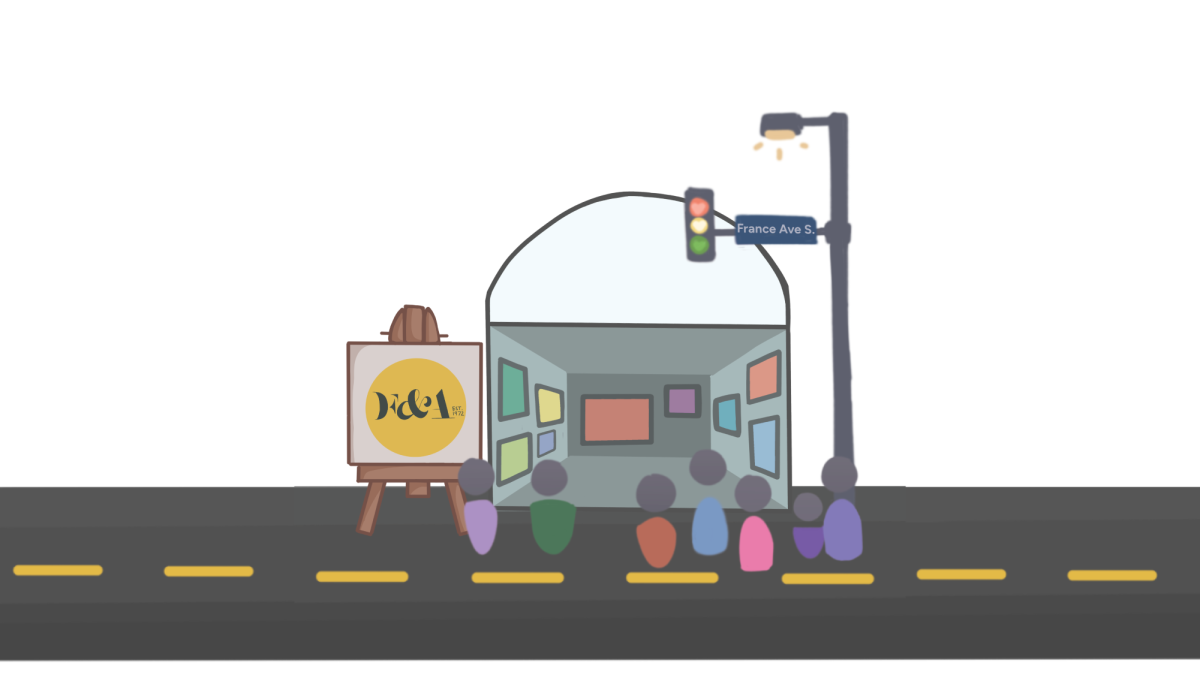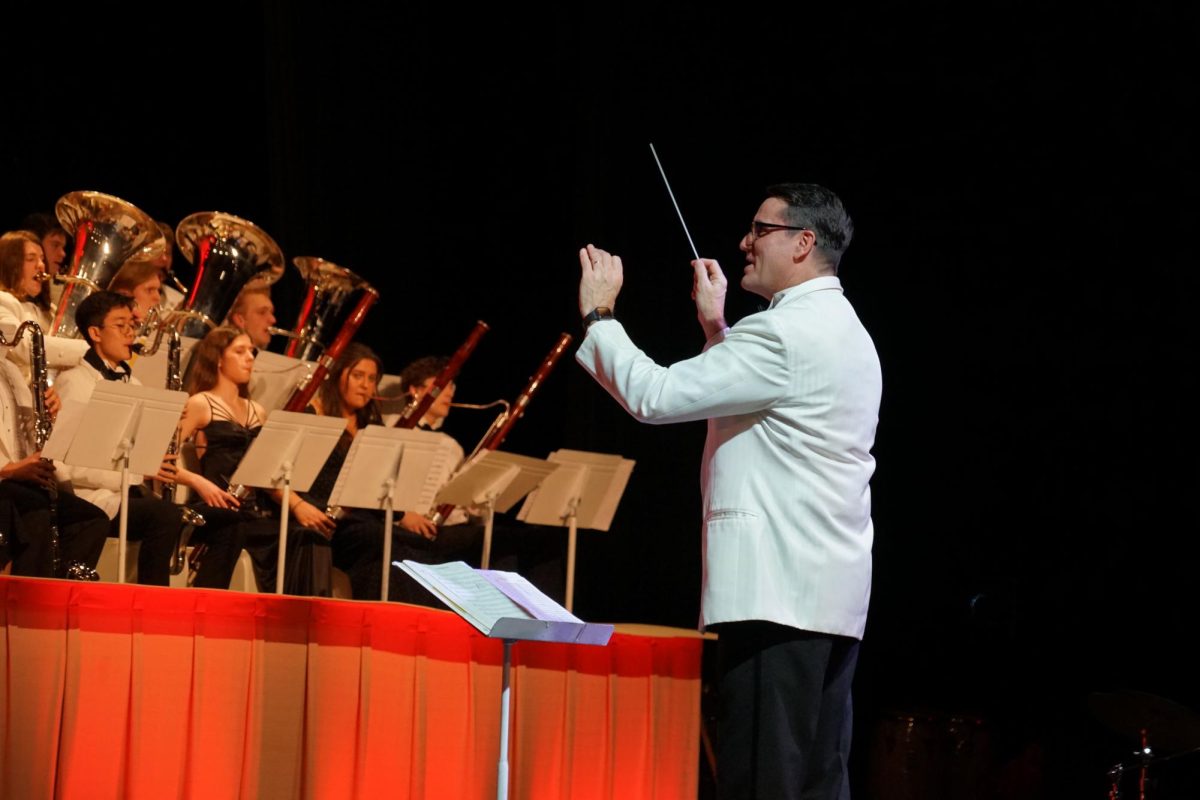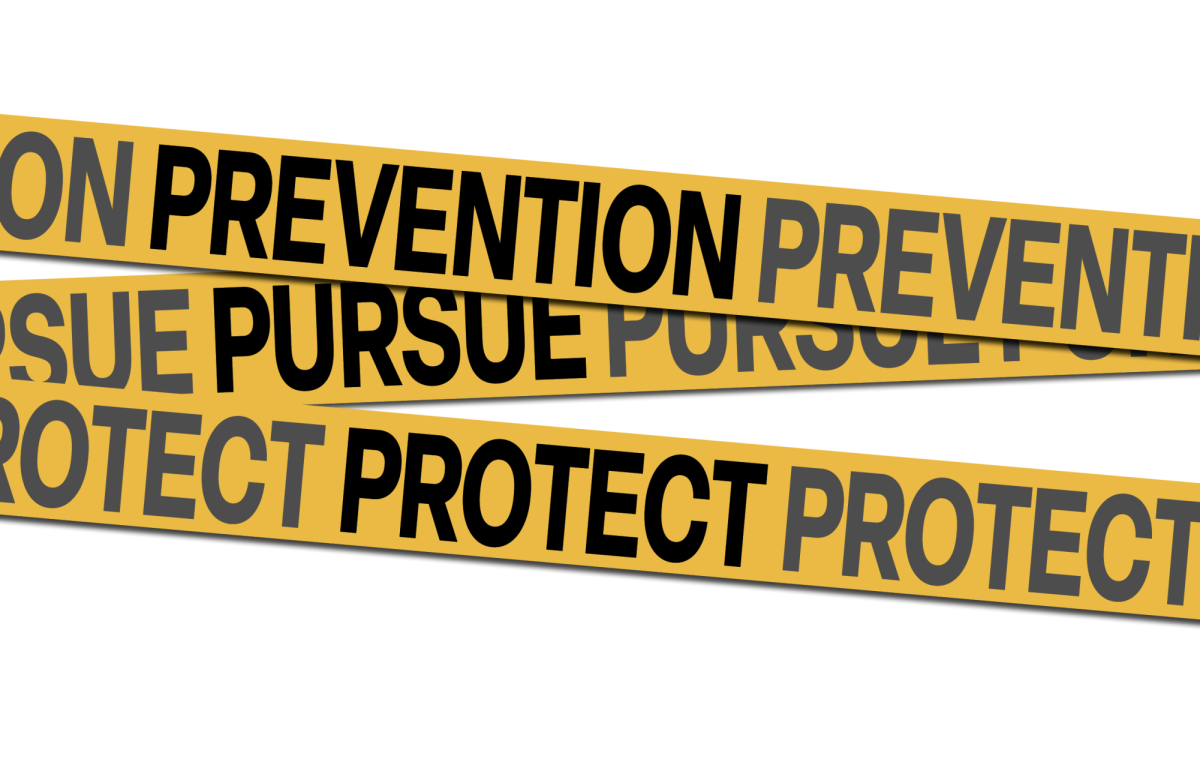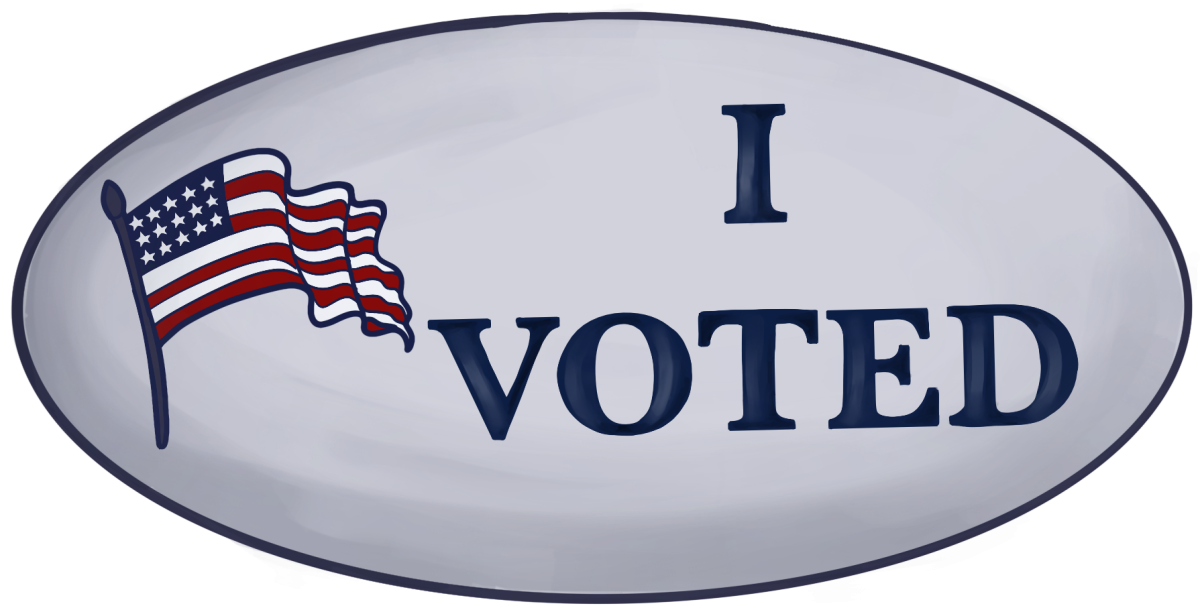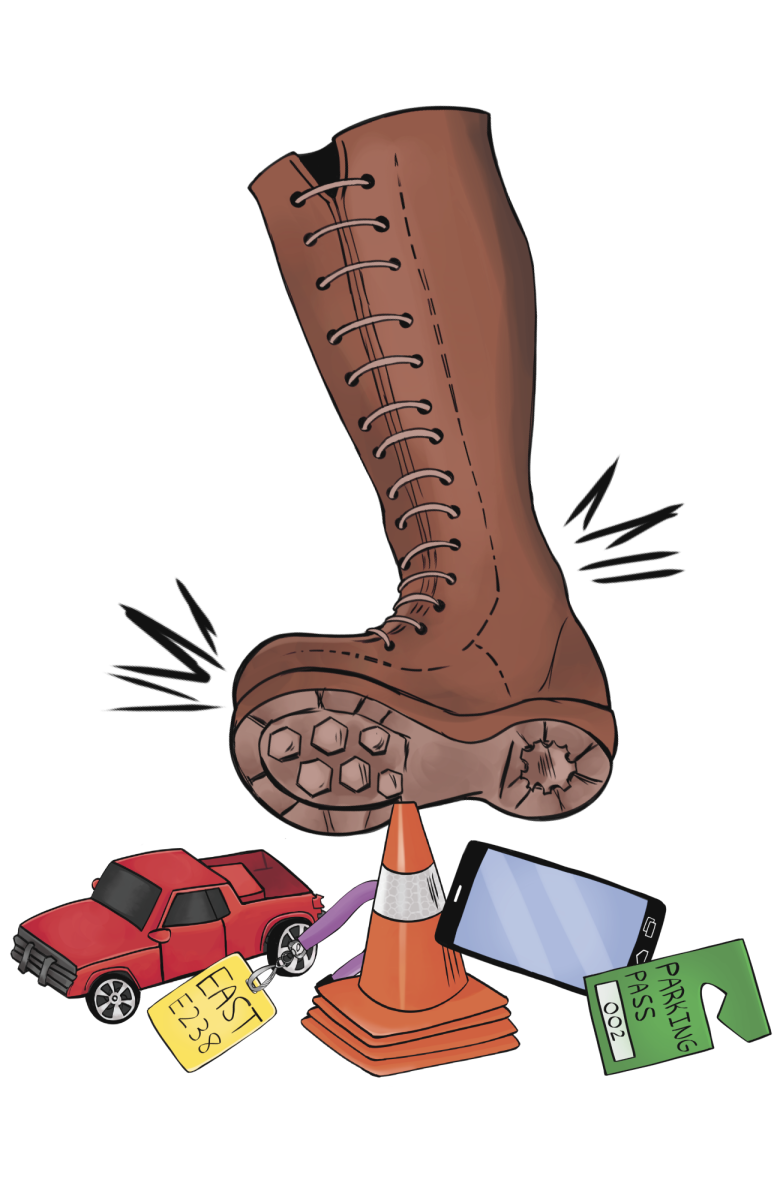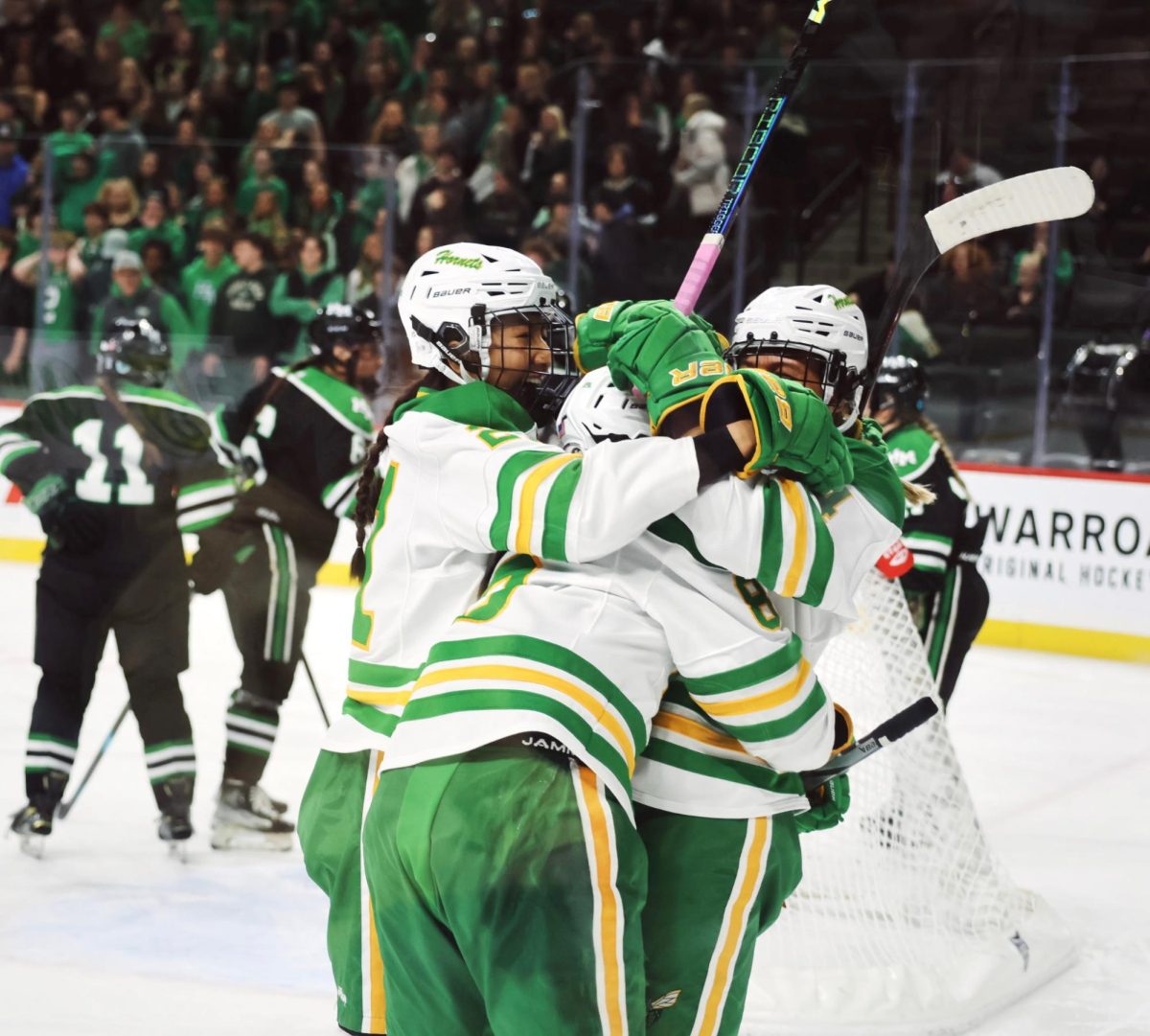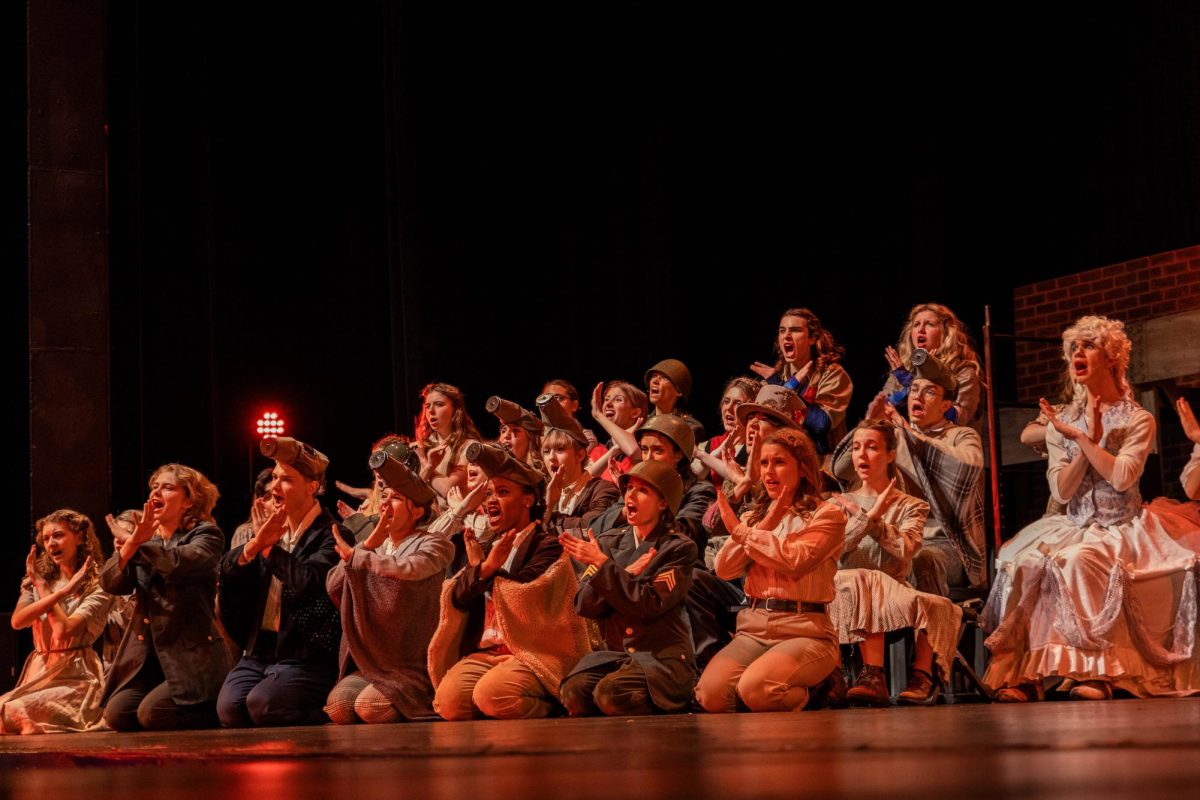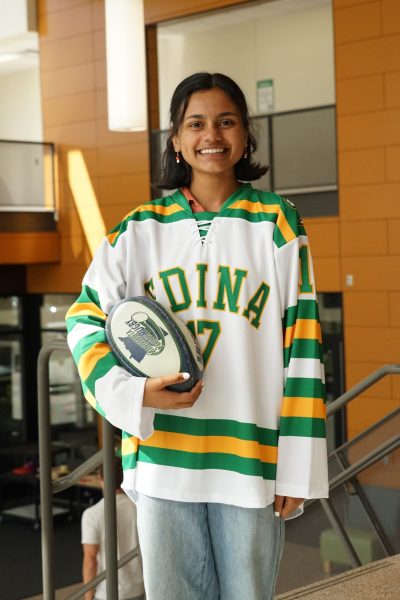A children’s book titled “How We Can Live” was labeled as unsafe on Book Looks, a popular website for parents that rates the safety of children’s books, because it taught “alternate sexualities, alternate gender ideologies [and] references to police brutality and racism.”
In “How We Can Live,” author Laleña Garcia writes, “We have a responsibility to explain the systems that have upheld racism in our country … so that children can understand what we are trying to change.” This sentence is part of the passages that Book Looks quotes as “controversial racial and social commentary.” Books that even mention the reality of discrimination are reported and banned from school and public libraries.
Many students at EHS believe that a lack of teaching about discrimination leads to ignorance.
“Teaching things like equality amongst people who are different from each other and why differences are necessary to have a better-functioning society is essential. If we ignore these differences, people are going to grow up ignorant. They’ll grow up thinking that differences are something to be angry about and something to be fighting over,” senior Rachel Bond said. “Banning books isn’t a solution. It just causes widespread ignorance and misinformation, leading to beliefs that cause discrimination in the long run.”
When a book is challenged by parents, religious groups or community members, it can get retained, restricted, or revoked at a public school or library. A large majority of books that were challenged recently were written by or about Black people, Indigenous people, members of the LGBTQIA+ community, or people of color. Seven of the top 10 most challenged books had LGBTQIA+ content cited as one of the reasons why.
“Diverse perspectives are important because we live in a diverse world.”
“Diverse perspectives are important because we live in a diverse world,” Maria Kwan, a 9th-grade English teacher, said. “If we say that a person’s experience doesn’t exist, then we push them to the side.”
The American Library Association (ALA) reports that in 2022, the number of book bans doubled from the previous year and was the highest since the ALA began collecting information over twenty years ago. From Jan. 1 to Aug. 31 this year, 3,923 books were challenged across the country.
“Our nation has become more polarized. We’re getting used to stating our opinions without listening to other people’s opinions,” Kwan said. “That’s an American problem. We have a very individualistic society which means that we are trained to focus on just our opinions and that is not the case in other countries in the world.”
Bond said that hyperpartisanship was the issue. “Book bans happen because people hop on the bandwagon,” she said. “If their [political] party says, ‘Let’s ban this book because it’s going to harm our children,’ the nature of polarization makes them agree.”
When somebody thinks of countries in which freedom of speech is protected, they typically think of America. However, a teacher voicing their opinion could cost them their job.
In Atlanta, Ga., a teacher was fired for reading the Scholastic-approved children’s book “My Shadow Is Purple” because the book used they/them pronouns and “considered gender beyond binary.”
A faculty member at Edina Public Schools said that books have become an extremely controversial topic because of polarization. “It doesn’t matter what side of the aisle you’re on,” they said. “If you’re a Republican you believe that the other side is wrong and you don’t want to hear about it. And it’s vice versa if you’re a Democrat, too. There aren’t many people who can see both sides. People ban books if they tell a different story than the one they want to hear. They ban books that don’t agree with them because they think it should just be their perspective.”
They explained that book banning is dangerous, unfortunate, and unnecessary. “If people can have a conversation about what they’re reading, then there really isn’t a danger in it. Sometimes people think that [reading banned books] would completely change kids’ perspectives,” they said. “Actually, it inspires conversations because if parents are concerned that their kids are reading something they shouldn’t, they can talk about it and maybe why their family believes something different. That promotes more thought and conversation.”
The novel “Dear Martin” was removed from a Missouri high school’s curriculum because it discussed racial profiling by police. Another book titled “Stamped” was banned in a North Carolina school district because a parent claimed it “contains Marxist ideology, inaccurate reframing of history, untruths, and disrespect for our nation and the Bible.”
“A lot of banned books touch on controversial issues in politics.”
“A lot of banned books touch on controversial issues in politics. Whether it’s from an LGBTQ perspective, or people of color, a lot of the books that I’ve noticed that have been banned represent those diverse voices and diverse perspectives. There’s a group of people that feel threatened by that,” 9th-grade English teacher Kate Bour said. “In order to not have those voices heard, they say, ‘You cannot read this. This material is not appropriate,’ and the masses don’t question it for themselves.”
Reading literature that reflects multiple perspectives is crucial, said EHS librarian Sara Swenson.
“Readers can either see themselves reflected in a book or learn about someone different. It’s pretty easy to stay isolated within your own community and a book is a very safe, easy way to learn about new things,” she said.
The anonymous faculty member explained the danger of only considering one viewpoint. “We can’t hear a single story because there’s a danger in that,” they said. “It’s dangerous because if somebody doesn’t have the ability to hear other perspectives, then they might believe that there actually is only one story out there, and there are many stories out there.”
They explained that there are “uppercase ‘T’ truths,” and there are “lowercase ‘t’ truths.” “If you believe that your perspective is an uppercase Truth, you think that your Truth is the only Truth and nothing else exists out there. If you believe that your truth is a lowercase truth, you believe that it’s true for you but other people have lowercase truths that are true for them. If you only hear a single story, you believe that there’s just an uppercase Truth, and that’s it.”
Books that incorporate diverse stories help prevent people from only believing in one uppercase ‘T’ truth while book banning puts the country in danger of accepting uppercase Truths, they said.
Libraries have always been a cornerstone of democracy and freedom of speech.
Throughout history, many authoritarians and dictators destroyed libraries in order to control the narrative and prevent the spread of ideas.
Kwan talked about her experience teaching the heavily censored curriculum in Hong Kong, where freedom of expression is limited. In 1987, the British and Chinese agreed to a handover of Hong Kong, a previously British colony that China would slowly gain control of over 50 years. However, protests in 2019 influenced China to speed up this process and take more power in Hong Kong.
“During that time, the Chinese government had a list of books that they viewed as subversive. Any school or library that offered these books would be penalized. The key is,” Kwan said, “they didn’t give us the list. So the school libraries and public libraries would be self-censored, meaning those books just disappeared. I had students who couldn’t find ‘Percy Jackson,’ which isn’t a book that you’d think of as the model of democracy. There were things that I couldn’t recommend to kids as book references, books that would no longer be available to them. Especially when I taught the science fiction unit which is all about society, I was thinking, ‘Is this safe?’ Because the public starts making connections or making assumptions about what might be the most subversive, and then they start pulling books off of their own shelves. That censorship narrows the students’ worldview.”
Kwan noted similarities in censorship between the United States and China. “Compared to China, the problem that students in the US are facing is much more identity-based,” she said. “It’s never more validating than to read something that reflects your experience. We’re limiting those stories. One of the potential harms of that is if you feel like you’re outside of what society expects, there’s nothing that confirms your experience as valid and you can feel like your experience doesn’t belong here. The worst-case scenario is suicide. Those are the things we risk by limiting stories.”
Historically, book banning has often been used as a tool of oppression. For instance, during the Holocaust, books written by Jewish authors, LGBTQIA+ authors, and anybody who spoke out against the Nazi party were burned. Ray Bradbury wrote “Fahrenheit 451” not long after World War II ended. The plot centers on how book burning can be used to tell one Truth. “Fahrenheit 451” is on many banned book lists in 2023.
“People are angry at bigger issues rather than the actual books themselves and books are an easy target,” Kwan said. “Instead of having a discussion nationwide about the issue, we’re trying to make it disappear.”
Libraries serve the purpose of providing uncensored information that everybody can access, and Swenson believes that limiting that accessibility harms education. “People should have the freedom to read what they would like to read. If you don’t like a book, don’t read the book, but I don’t think it’s okay for people to say you can’t have that book. Families should make the decisions for what they want their kids to read, but the library should have a wide and diverse collection of books so kids can read and learn about a wide variety of different topics,” Swenson said.
Dr. Rudine Sims Bishop, a prominent educator who became known as the mother of multicultural children’s literature, writes that in books there are mirrors and windows.
Books can allow you to see your own experiences mirrored or to look through a window and understand somebody else’s. Bour believes that representation through mirrors in literature is essential, especially for minority demographics. “Everybody needs to have a voice and be heard. There are so few diverse voices and it doesn’t reflect the population. It’s important for everybody to be seen in literature. One of my reasons for reading is being able to identify with characters and it’s tough if you never feel like you are represented,” she said.
Banning books also prevents people from looking through a window and understanding the experiences of others. Bond feels it is crucial to education, especially for those who have limited exposure to concepts like racism. “Limitations on what we learn, especially through books, don’t protect our children. They just make them grow up to be more ignorant and uncomfortable with other people just existing,” she said. “You’re allowing your children to accept ignorance when we’re in a society where change is necessary, where systemic problems are still prevalent, and where one of the biggest barriers to any potential solvency for them is ignorance.”



